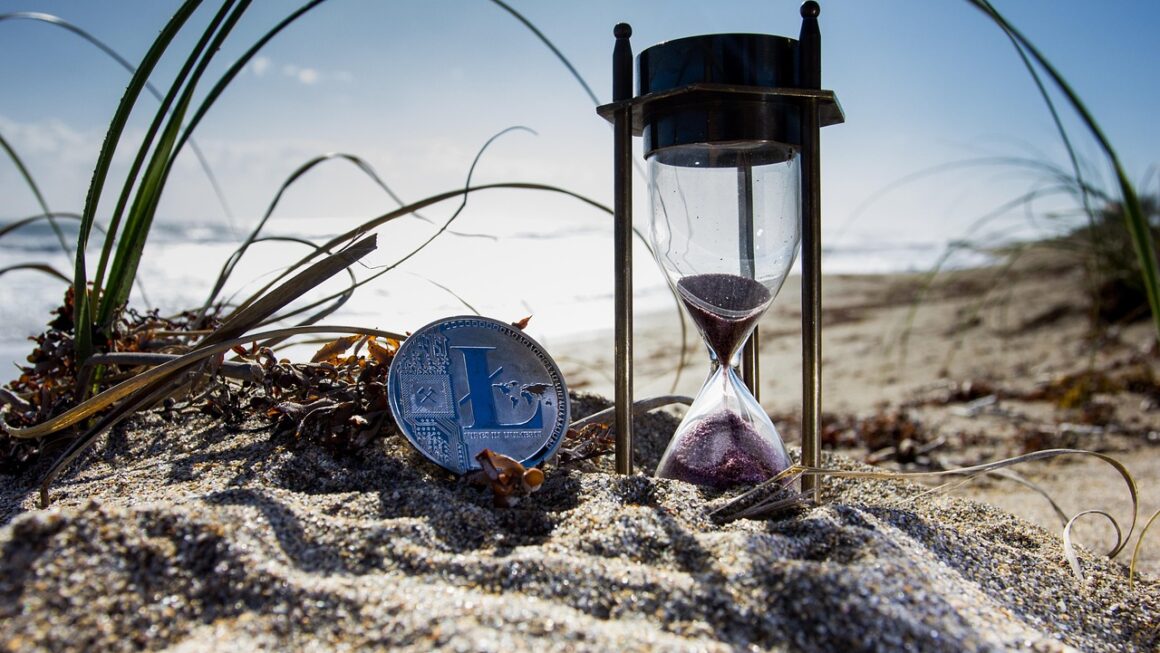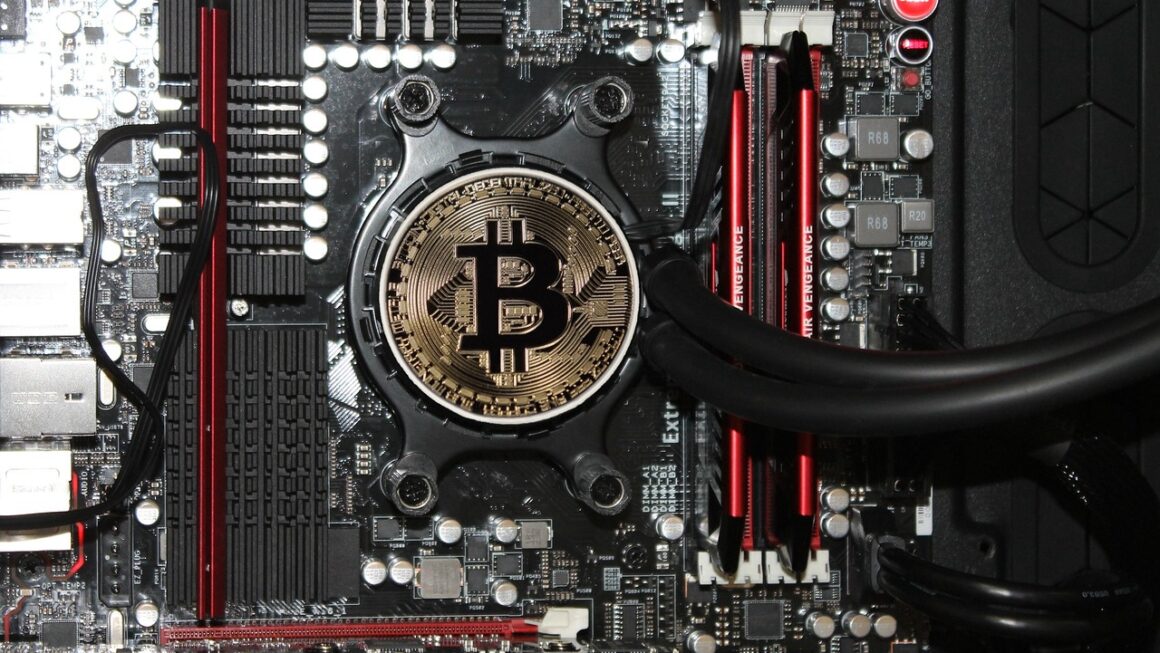zk-Rollups are revolutionizing the Ethereum scaling landscape by offering significantly faster transaction speeds and lower costs without compromising security. As Ethereum faces increasing congestion and high gas fees, solutions like zk-Rollups are becoming crucial for its widespread adoption. This blog post provides an in-depth look at zk-Rollups, how they work, their benefits, and their potential impact on the future of blockchain technology.
What are zk-Rollups?
Understanding Layer-2 Scaling Solutions
zk-Rollups are a type of Layer-2 scaling solution for Ethereum. Layer-2 solutions operate on top of the Ethereum mainnet (Layer-1) to handle transactions off-chain, thereby reducing congestion and improving throughput. This is in contrast to Layer-1 scaling solutions, which modify the underlying Ethereum protocol itself.
For more details, see Investopedia on Cryptocurrency.
- Layer-1: The base Ethereum blockchain.
- Layer-2: Protocols built on top of Ethereum that handle transactions outside the main chain.
zk-Rollups are particularly compelling because they leverage zero-knowledge proofs (ZKPs) to ensure transaction validity without requiring all transaction data to be published on the main chain. This results in significantly lower gas costs and faster transaction confirmations.
How zk-Rollups Work
At their core, zk-Rollups work by bundling hundreds of transactions into a single batch processed off-chain. A cryptographic proof, known as a ZKP, is then generated to prove the validity of this batch. This proof, along with a minimal amount of on-chain data, is posted to the Ethereum mainnet. Because only the proof and a small amount of data need to be verified on-chain, zk-Rollups dramatically reduce the computational load on the Ethereum network.
Here’s a simplified breakdown of the process:
Zero-Knowledge Proofs Explained
Zero-Knowledge Proofs (ZKPs) are cryptographic techniques that allow one party (the prover) to prove to another party (the verifier) that a statement is true, without revealing any information beyond the truth of the statement itself. There are several types of ZKPs, but two popular ones in the context of zk-Rollups are:
- zk-SNARKs (Zero-Knowledge Succinct Non-Interactive ARguments of Knowledge): These are known for their small proof sizes and fast verification times, but they often require a trusted setup. This means a specific cryptographic ceremony needs to be conducted to generate parameters for the proof system, and any compromise of these parameters could potentially undermine the security of the entire zk-Rollup.
- zk-STARKs (Zero-Knowledge Scalable Transparent ARguments of Knowledge): These don’t require a trusted setup, making them more transparent and potentially more secure. However, zk-STARKs generally result in larger proof sizes and slower verification times compared to zk-SNARKs.
The choice between zk-SNARKs and zk-STARKs depends on the specific requirements and priorities of the zk-Rollup implementation.
Benefits of Using zk-Rollups
Scalability and Throughput Improvements
zk-Rollups significantly improve the scalability of Ethereum by processing transactions off-chain and verifying them on-chain with compact ZKPs. This results in a much higher transaction throughput compared to Ethereum’s mainnet.
- zk-Rollups can achieve transaction throughput rates exceeding 2,000 transactions per second (TPS), far surpassing Ethereum’s Layer-1 capacity (around 15 TPS).
- By batching transactions, zk-Rollups drastically reduce the gas costs for each transaction, making them significantly cheaper for users.
Enhanced Security
zk-Rollups inherit the security of the Ethereum mainnet. Since the validity proofs are verified by smart contracts on Ethereum, they benefit from the robust security and decentralization of the underlying blockchain. Even if the off-chain operator is malicious or compromised, they cannot forge valid ZKPs.
- Unlike some other Layer-2 solutions, zk-Rollups don’t rely on a single sequencer that can censor transactions or halt the system.
- zk-Rollups ensure that all state transitions are cryptographically proven, providing strong guarantees of data integrity.
Lower Transaction Fees
The reduced gas costs associated with zk-Rollups translate directly into lower transaction fees for users. This is particularly beneficial for applications that require frequent and small transactions, such as decentralized exchanges (DEXs) and micro-payment platforms.
- zk-Rollups can reduce transaction fees by an order of magnitude compared to transacting directly on the Ethereum mainnet.
- Lower fees encourage broader participation in the Ethereum ecosystem, especially for users with limited capital.
Faster Transaction Confirmations
Transactions within a zk-Rollup are typically confirmed much faster than on the Ethereum mainnet. Since the validity proof is verified by a smart contract, confirmations are almost immediate once the proof is submitted.
- zk-Rollups offer near-instant transaction confirmations, improving the user experience and making them suitable for real-time applications.
- Faster confirmations reduce the risk of front-running and other forms of transaction manipulation.
Challenges and Considerations
Computational Complexity
Generating ZKPs can be computationally intensive, requiring significant computing power. This can be a barrier to entry for some developers and operators.
- zk-SNARKs often require specialized hardware for efficient proof generation.
- zk-STARKs are more computationally intensive for verification on-chain due to larger proof sizes.
Development Complexity
Developing and implementing zk-Rollups is complex and requires specialized expertise in cryptography and blockchain technology.
- Building and auditing ZKP circuits is a challenging task.
- Integrating zk-Rollups with existing applications can require significant modifications to their architecture.
Data Availability
Ensuring data availability is crucial for zk-Rollups to maintain their security guarantees. While the ZKP proves the validity of state transitions, it’s still important that the underlying transaction data is available for users to reconstruct their account states and challenge invalid state transitions if necessary.
- Some zk-Rollups rely on on-chain data availability, which can be expensive.
- Other zk-Rollups use alternative data availability solutions, such as Validium or Volition, which involve storing transaction data off-chain but providing mechanisms for users to retrieve it. This can introduce additional trust assumptions.
Trusted Setup
As mentioned earlier, zk-SNARKs often require a trusted setup ceremony to generate the parameters for the proof system. This is a potential security risk, as any compromise of the setup parameters could allow an attacker to forge valid proofs. While efforts are made to conduct these ceremonies securely, it’s a factor to consider. zk-STARKs, on the other hand, do not require a trusted setup.
Examples of zk-Rollup Projects
Loopring
Loopring is a decentralized exchange (DEX) protocol that utilizes zk-Rollups to provide fast and low-cost trading. It leverages zk-SNARKs to batch and verify trades off-chain, allowing for high throughput and low gas fees. Loopring’s DEX offers a similar user experience to centralized exchanges while maintaining the security and transparency of a decentralized platform.
- Loopring offers a non-custodial trading experience, meaning users retain control of their funds at all times.
- It supports limit orders, market orders, and other advanced trading features.
StarkNet
StarkNet is a permissionless decentralized ZK-Rollup that allows dApps to achieve massive scale without compromising Ethereum’s composability and security. It utilizes zk-STARKs, providing transparency and scalability without requiring a trusted setup. StarkNet aims to be a general-purpose scaling solution for a wide range of applications.
- StarkNet supports smart contracts written in Cairo, a programming language designed for ZKPs.
- It allows developers to deploy complex dApps with high throughput and low gas fees.
zkSync
zkSync is another popular zk-Rollup project that aims to provide scalable and low-cost transactions on Ethereum. It uses zk-SNARKs for validity proofs and supports both token transfers and smart contract execution. zkSync is designed to be easy to use and integrate with existing Ethereum applications.
- zkSync offers a user-friendly interface and simple API for developers.
- It supports both ETH and ERC-20 token transfers.
Immutable X
Immutable X is a Layer-2 scaling solution specifically designed for NFTs (Non-Fungible Tokens) on Ethereum. It leverages zk-Rollups to enable gas-free NFT minting and trading, making it more accessible and affordable for users and developers. Immutable X aims to facilitate the widespread adoption of NFTs by addressing the scalability challenges associated with Ethereum.
- Immutable X offers instant transaction confirmations and high transaction throughput.
- It provides a suite of developer tools and APIs for building NFT applications.
Conclusion
zk-Rollups represent a significant step forward in addressing Ethereum’s scalability challenges. By leveraging zero-knowledge proofs to verify transactions off-chain, they offer a compelling combination of high throughput, low fees, and strong security. While challenges remain in terms of computational complexity and development, the potential benefits of zk-Rollups are undeniable. As more projects adopt and refine zk-Rollup technology, they are poised to play a crucial role in the future of Ethereum and the broader blockchain ecosystem. Understanding zk-Rollups is essential for anyone involved in blockchain development, investing, or simply interested in the evolution of decentralized technologies. Keep an eye on projects like Loopring, StarkNet, zkSync, and Immutable X, as they continue to push the boundaries of what’s possible with zk-Rollups.
Read our previous article: Tech Horizons: Navigating AI, Web3, And Beyond




